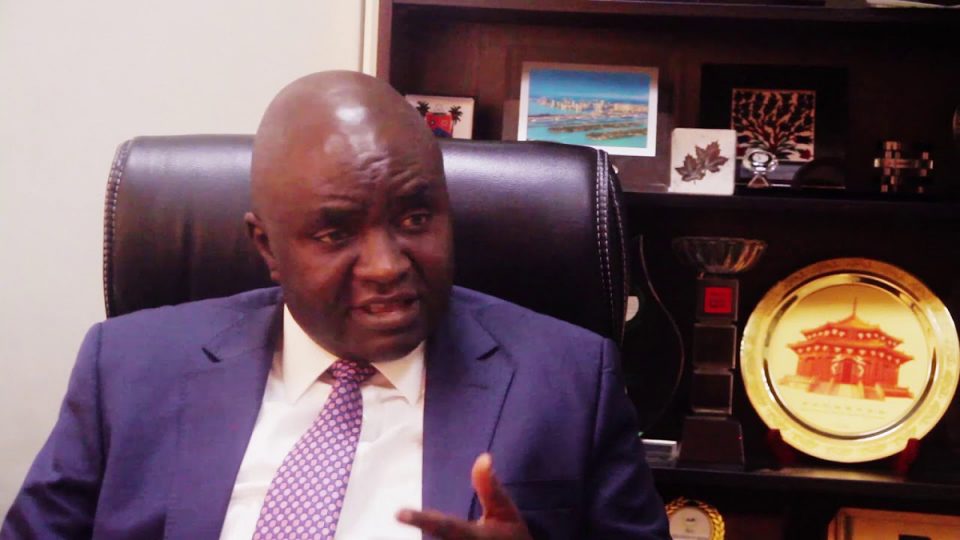Financial Analysts are worried that the decline in capital importation for FY:2020 which contracted by 59.7% y/y to $9.7bn from $23.9bn in 2019, is mainly attributed to the heightened risks brought by the COVID-19 which resulted in weak sentiment in emerging markets and foreign capital outflows, and may remain low till Q3:2021.
They also argued that the wide premium between exchange rates at the parallel market and the I&E window also suggests a mispricing of the currency, making, investors and businesses reluctant to bring in capital.
According to the analysts, the introduction of capital controls amid FX illiquidity, similar to the case in 2016 has left foreign investors stuck in the market and made Nigeria less attractive as an investment destination.
It would be recalled that the latest capital importation report released by the National Bureau of Statistics (NBS), disclosed that the inflows of $9.68 billion represent 59.6% decline when compared to $23.99 billion recorded in 2019 and 42.4% reduction compared to $16.81 billion recorded in 2018.
The NBS reports show that Nigeria recorded its lowest capital inflows in the past four years in 2020.
The last time Nigeria recorded inflows less than $9 billion was 2016 when it received $5.12 billion in foreign capital inflows.
Nigeria’s capital importation is categorised into three investment types: Portfolio Investment, Foreign Direct Investment (FDI), and Other Investment.
Portfolio Investment (FPI), formed the highest type of capital investment into Nigeria with a total inflow of $5.14 billion, representing 53.1% of the total inflows.
The breakdown shows that $4.15 billion was received through Money market instruments, $755.1 million in form of equity, while $231 million was received in form of bond investments.
Other Investment in the year 2020, indicates $3.51 billion was received in form of other investments, accounting for 36.3% of the total inflows.
A cursory look at the breakdown shows that $2.58 billion was received through loans, $934.6 million from other claims, $820,000 as currency deposits while $50,000 from trade credits.
Dr. Timothy Olawale, Director General of the Nigeria Employers Consultative Association (NECA), in an exclusive interview with DAILY INDEPENDENT on the impact of low Capital Importation said the uncertainty around the COVID-19 pandemic’s evolution and the global investment policy environment will continue to affect FDI flows inflows globally in 2021.
“For developing countries such as Nigeria, the prospects for this year are a major concern”, he said
He specifically said: “This low rate of FDI and Capital Importation is likely to continue till the third quarter of 2021 and beyond, chief among which are: poor investment climate characterised by overly stringent government policies, bureaucratic bottlenecks for securing permits, and a weak legal framework. In 2015, MTN, one of the most prominent and successful foreign investors in Nigeria, was sanctioned with a $5.2 billion fine for failing to disconnect unregistered subscribers. Such draconian punishment cannot be encouraging for prospective investors.
Mr. Friday Nathan Udoh, South South Coordinator of Institute of Chattered Economists of Nigeria, (ICEN), in chats with our correspondent on the impact of low Capital Importation, said the NBS report which revealed that for Q4:2020, total capital imported into Nigeria dropped 71.9% y/y and 26.8% q/q to $1.0bn, same level as recorded in Q2:2016 is an indication that the nation’s foreign investment will remain weak till Q3: 2021 due to the weak prospects of an improvement in the external environment and the currency challenges.
According to Udoh, the q/q decline was across all the key components of the total imported capital excluding other Investments which rose 22.5% q/q to $783.3m (-52.9% y/y), a pointer that, “our policy makers must proactively tackle external environment and the currency challenges”.
Dr. Muda Yusuf, Director General of the Lagos Chamber of Commerce and Industry (LCCI), in an interview with our correspondent said the decline in capital importation reflects the volatile macroeconomic environment and weak medium to long-term economic prospects.
He noted that total capital import for Q4:2020 into Nigeria which to dropped 71.9% y/y and 26.8% q/q to $1.0bn, same level as recorded in Q2:2016 is as a result of the volatile macroeconomic environment
Oyinkan Olasanoye, President of the Association of Senior Staff of Banks, Insurance and other Financial Institutions (ASSBIFI), in an exclusive interview with DAILY INDEPENDENT, stated that the decline in capital inflows can be attributed to disruptions caused by the COVID-19 outbreak, which affected most economies in the world due to travel restrictions and halt in business activities.
Olasanoye noted that the banking sector recorded the highest inflows with $3.75 billion worth of foreign inflows, accounting for 38.75% of the total inflows, adding that financing followed with inflows of $1.89 billion while shares received $1.85 billion in 2020.
She said: “Nigeria will hope to turn things around between now and Q3:2021 by boosting its foreign inflows especially in terms of direct investments in order to drive the economy positively.
“We need to have a properly, articulated, physical and monetary stimulus to support micro, medium and small enterprises, to be able to pull people out of poverty”.
Afrinvest in its Weekly Update on Capital Importation Report, stated that the disaggregated full year data shows that Foreign Portfolio Investment (FPI) was the largest source of capital import at $5.1bn in FY:2020. Notwithstanding, FPI declined 68.6% y/y to reach the weakest level since 2017.
Capital import from Other Investments, according to the report declined 47.5% y/y to $3.5bn from $6.7bn, weakened by the 49.2% y/y contraction in capital import from Loans.
“We attribute the weakness in FPI inflows to the bleak external conditions and Nigeria’s currency crisis which reduced investors’ participation”, it said.



